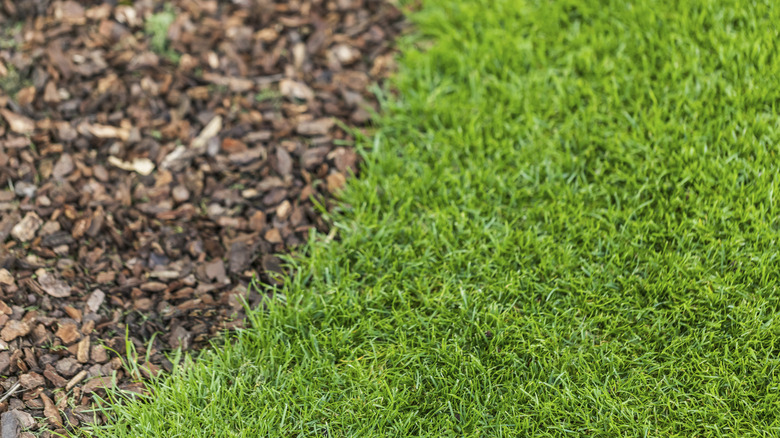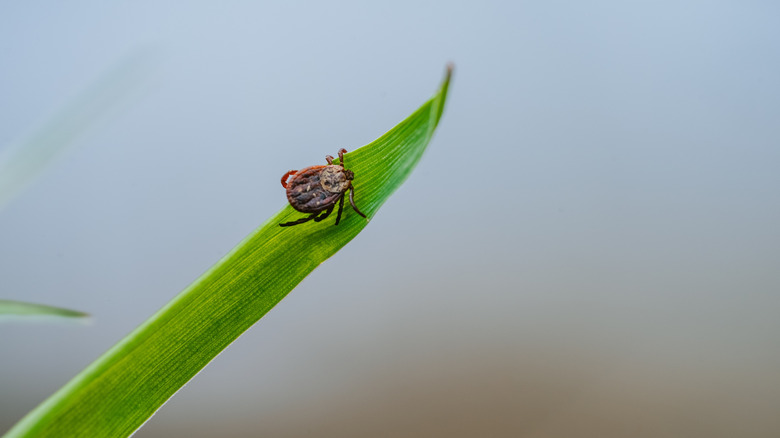Is The Mulch Barrier In Your Yard Actually Attracting Ticks? Here's What We Know
Mulch is simply the name gardeners give to a layer of material spread on top of soil. It can be organic, like compost or manure, or can consist of inorganic materials such as landscape fabric or gravel. It also has the ability to suppress weeds, insulate tender plants, and add nutrients to the soil. Mulch is widely used because it is effective; the benefits far outweigh the risks. However, ticks, those small, disease-spreading arachnids found throughout the United States, are one of the risks associated with mulch. Wearing long pants, closed-toe shoes, and knee socks may be one of the most effective methods to protect yourself from their bites, but it's probably not your preferred outfit for backyard fun. Ticks thrive in moist, shady areas. Fresh mulch and leaf litter, particularly in shaded areas, are attractive to ticks but inorganic materials like crushed rock are not. Popular ground covers that double as living mulch like sedum (Sedum spp.) can also harbor ticks and rodents.
Homeowners whose property borders a wooded area sometimes use mulch as a barrier between the yard and the forest as a way to discourage deer ticks. This type of tick does not venture more than 9 feet beyond the forest's edge. A mulch barrier used to keep ticks out of the yard should be made of crushed stone or dry wood chips or should simply be away from spaces pets and humans might occupy.
Keeping your yard tick-free
Fresh mulches like wood chips, grass cuttings, and leaf litter can create the dark, moist conditions that ticks like. They do not attract ticks, per se, they just provide a safe space for them to occupy while waiting for a helpful host to pass by. Cedar chips are believed to be effective against ticks because the arachnids are repelled by cedarwood oil, specifically Eastern redcedar and some other juniper species. Unfortunately, the efficacy of cedarwood oil fades over time. The question of whether or not cypress mulch can protect your garden from ticks needs further research.
While cedar mulch may be somewhat effective at keeping ticks at bay, it could also be harmful to beneficial insects like bees. If you choose to use cedar mulch, create a safe space in the yard for those helpful insects. In addition to not placing mulch in damp, shady locations, keep your lawn mowed and clear away brush piles, leaves, and weeds. Trim your trees so more sunlight can reach your yard. Move bird feeders away from the house and stack your firewood in a sunny area. You should also keep your trash cans tightly closed so the critters that carry ticks cannot climb their way in. When you do need to use mulch, use an inorganic material like landscape fabric or plastic sheeting over an organic mulch. These methods can help reduce the chance of ticks finding a home in your yard.

